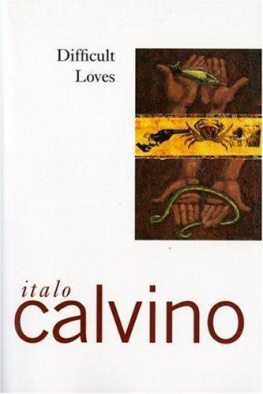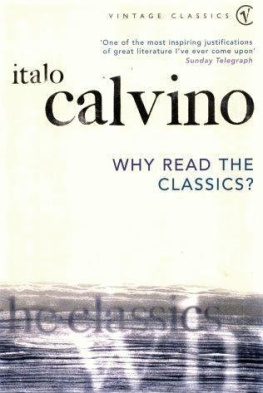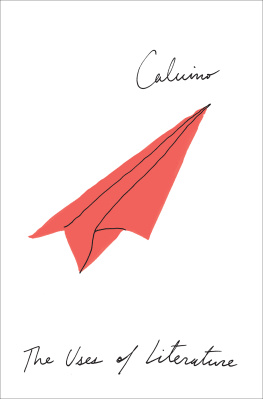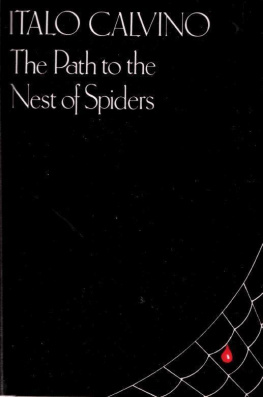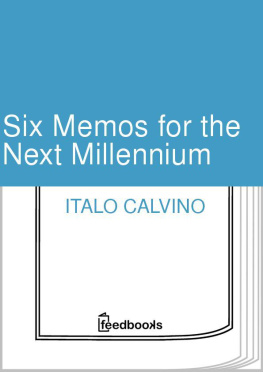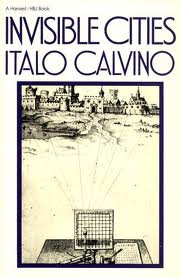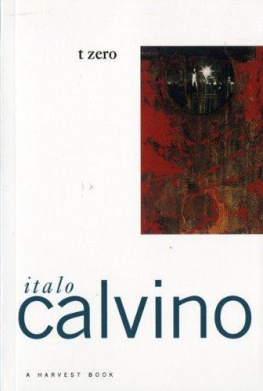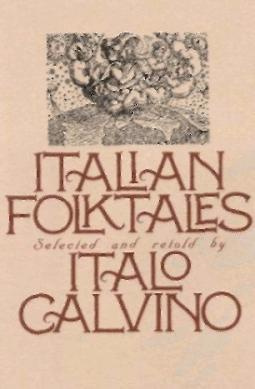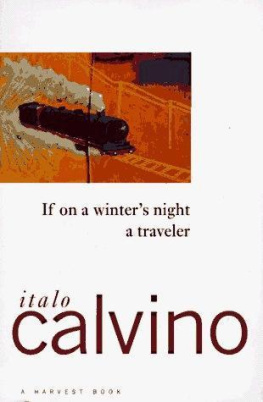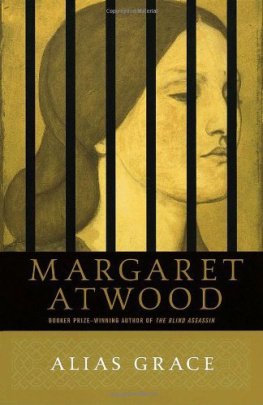
Italo Calvino
DIFFICULT LOVES
Translated from the Italian by
WILLIAM WEAVER and
ARCHIBALD COLQUHOUN and PEGGY WRIGHT
Copyright 1985
ISBN: 0-15-125610-1
CONTENTS
RIVIERA STORIES 1
Adam, One Afternoon 3
The Enchanted Garden 16
A Goatherd at Luncheon 22
The House of the Beehives 31
Big Fish, Little Fish 36
A Ship Loaded with Crabs 47
Man in the Wasteland 54
Lazy Sons 61
WARTIME STORIES 69
Fear on the Footpath 71
Hunger at Bvera 79
Going to Headquarters 87
The Crow Comes Last 95
One of the Three Is Still Alive 102
Animal Woods 112
Mine Field 122
POSTWAR STORIES 129
Theft in a Pastry Shop 131
Dollars and the Demimondaine 141
Sleeping like Dogs 15 5
Desire in November 164
Transit Bed 174
STORIES OF LOVE AND LONELINESS 183
The Adventure of a Soldier 185
The Adventure of a Bather 197
The Adventure of a Clerk 209
The Adventure of a Photographer 220
The Adventure of a Traveler 236
The Adventure of a Reader 254
The Adventure of a Nearsighted Man 272
The Adventure of a Poet 283
NOTE
"Riviera Stories," "Wartime Stories," and "Postwar Stories" were written between 1945 and 1949 and collected in the volume Ultimo viene il corvo (Turin: Einaudi, 1949). The remaining stories were written during the 1950s and collected in the volume J racconti (Turin: Einaudi, 1958).
The stories on pp. 3, 16, 22, 31, 71, 79, 87, 95, 102, 112, 131, 141, 155, and 164 were translated by Archibald Colquhoun and Peggy Wright for the volume Adam, One Afternoon and Other Stories (London: Collins, 1957; London: Seeker & Warburg, 1983). The remaining stories were translated for the present volume by William Weaver.
RIVIERA STORIES
ADAM, ONE AFTERNOON
The new gardener's boy had long hair kept in place by a piece of cloth tied around his head with a little bow. He was walking along the path with his watering can filled to the brim and his other arm stretched out to balance the load. Slowly, carefully, he watered the nasturtiums as if pouring out coffee and milk, until the earth at the foot of each plant dissolved into a soft black patch; when it was large and moist enough he lifted the watering can and passed on to the next plant. Maria-nunziata was watching him from the kitchen window, and thinking what a nice calm job gardening must be. He was a young man, she noticed, though he still wore shorts and that long hair made him look like a girl. She stopped washing the dishes and tapped on the window.
"Hey, boy," she called.
The gardener's boy raised his head, saw Maria-nunziata, and smiled. She laughed back at him, partly because she had never seen a boy with such long hair and a bow like that on his head. The gardener's boy beckoned to her with one hand, and Maria-nunziata went on laughing at the funny gesture he'd made, and began gesturing back to explain that she had the dishes to
wash. But the boy beckoned again, and pointed at the pots of dahlias with his other hand. Why was he pointing at those dahlias? Maria-nunziata opened the window and stuck her head out.
"What's up?" she asked, and began laughing again.
"D'you want to see something nice?"
"What's that?"
"Something nice. Come and see. Quickly."
"Tell me what."
"I'll give it to you. I'll give you something very nice."
"But I've got the dishes to wash, and the signora'll come along and not find me."
"Do you want it or don't you? Come on, now."
"Wait a second," said Maria-nunziata, and shut the window.
When she came out through the kitchen door the gardener's boy was still there, watering the nasturtiums.
"Hello," said Maria-nunziata.
Maria-nunziata seemed taller than she was because of her high-heeled shoes, which were awful to work in, but she loved wearing them. Her little face looked like a child's amid its mass of black curls, and her legs were thin and childlike, too, though her body, under the folds of her apron, was already round and ripe. She was always laughing: either at what others or she herself said.
"Hello," said the gardener's boy. The skin on his face, neck, and chest was dark brown, perhaps because he was always half naked, as now.
"What's your name?" asked Maria-nunziata.
"Libereso," said the gardener's boy.
Maria-nunziata laughed and repeated: "Libereso ... Libereso ... what a funny name, Libereso."
"It's a name in Esperanto," he said. "In Esperanto it means 'liberty.' "
"Esperanto," said Maria-nunziata. "Are you Esperanto?"
"Esperanto's a language," explained Libereso. "My father speaks Esperanto."
"I'm Calabrian," exclaimed Maria-nunziata.
"What's your name?"
"Maria-nunziata," she said and laughed.
"Why are you always laughing?"
"Why are you called Esperanto?"
"Not Esperanto, Libereso."
"Why?"
"Why are you called Maria-nunziata?"
"It is the Madonna's name. I'm named after the Madonna, and my brother after Saint Joseph."
"Senjosef?"
Maria-nunziata burst out laughing: "Senjosef! Saint Joseph, not Senjosef, Libereso!"
"My brother," said Libereso, "is named 'Germinal' and my sister 'Omnia.' "
"That nice thing you mentioned," said Maria-nunziata, "show it to me."
"Come on, then," said Libereso. He put down the watering can and took her by the hand.
Maria-nunziata hesitated. "Tell me what it is first."
"You'll see," he said, "but you must promise me to take care of it."
"Will you give it to me?"
'Yes, I'll give it to you." He had led her to a corner of the garden wall. There the dahlias standing in pots were as tall as the two of them.
"It's there."
"What is?"
"Wait."
Maria-nunziata peeped over his shoulder. Libereso bent down to move a pot, lifted another by the wall, and pointed to the ground.
"There," he said.
"What is it?" asked Maria-nunziata. She could not see anything; the corner was in shadow, full of wet leaves and garden mold.
"Look, it's moving," said the boy. Then she saw something that looked like a moving stone or leaf, something wet, with eyes and feet; a toad.
"Mammamia!"
Maria-nunziata went skipping away among the dahlias in her high-heeled shoes. Libereso squatted down by the toad and laughed, showing the white teeth in the middle of his brown face.
"Are you frightened? It's only a toad! Why are you frightened?"
"A toad!" gasped Maria-nunziata.
"Of course it's a toad. Come here," said Libereso.
She pointed at it with a trembling finger. "Kill it."
He put out his hands, as if to protect it. "I don't want to. It's so nice."
"A nice toad?"
"All toads are nice. They eat the worms."
"Oh!" said Maria-nunziata, but she did not come any nearer. She was chewing the edge of her apron and trying to watch out of the corners of her eyes.
"Look how pretty it is," said Libereso and put a hand on it.
Maria-nunziata approached, no longer laughing, and looked on, open-mouthed. "No! No! Don't touch it!"
With one finger Libereso was stroking the toad's gray-green back, which was covered with slimy warts.
"Are you mad? Don't you know they burn when you touch them, and make your hand swell up?"
The boy showed her his big brown hands, the palms covered with a layer of yellow calluses.
"Oh, it won't hurt me," he said. "And it's so pretty."
Now he'd taken the toad by the scruff of the neck like a cat and put it in the palm of his hand. Maria-nunziata, still chewing the edge of her apron, came nearer and crouched down beside him.
Next page
